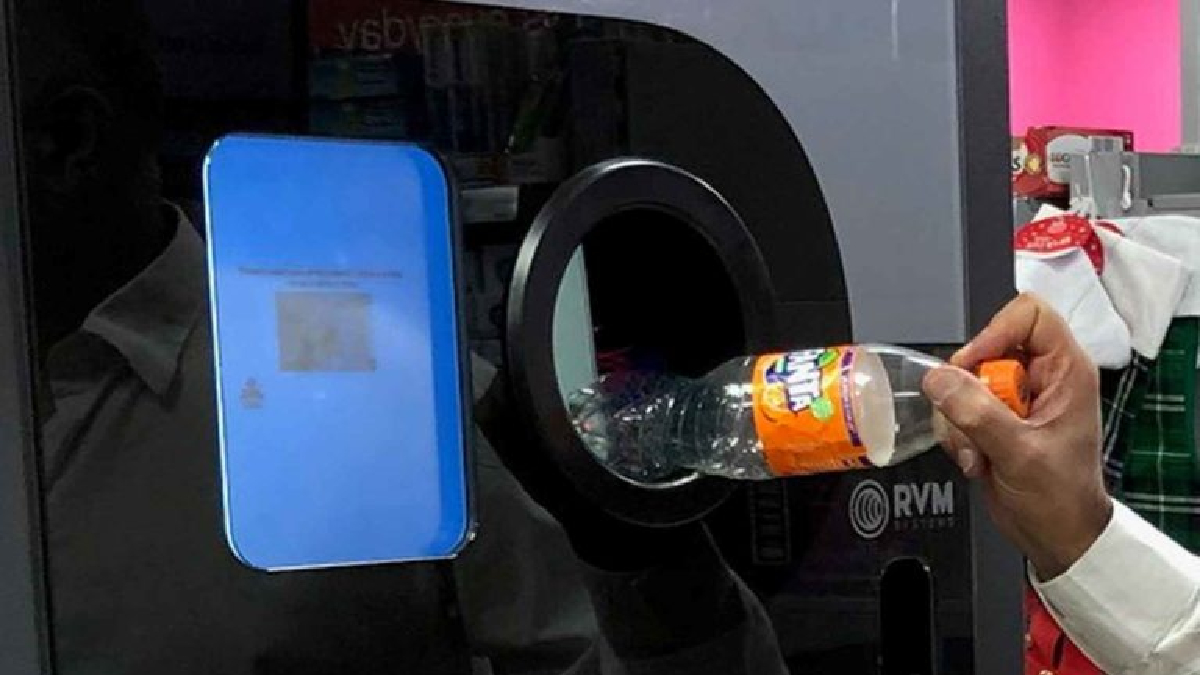England and Northern Ireland’s Deposit Return Scheme (DRS) is to exclude glass and the disposable cup take-back scheme is to go ahead.
The Department of Agriculture, Environment and Rural Affairs (DAERA) has published its response to consultations on reforms to the Extended Producer Responsibility scheme, announcing that glass will not be in scope of the planned DRS in England and Northern Wales.
The government consultation on reforming the UK’s extended producer responsibility scheme to drive up the rates of packaging waste recycling.
EXCLUSIVE: Scottish Grocers’ Federation denies legal challenge claims over DRS
The Association of Convenience Stores (ACS) has consistently called for the exclusion of glass in the scheme due to the operational and health and safety issues that it presents for retailers and colleagues.
ACS chief executive James Lowman said: “Retailers in England and Northern Ireland will be relieved that they won’t have to handle the return of glass drinks containers as part of a DRS. All of the operational problems related to a DRS – colleague safety, storage, handling heavy waste and breakages – are made much more acute by the inclusion of glass.
“We are disappointed that retailers in Wales and Scotland will have to face into these problems and bear the significant financial and operational costs of doing so. Furthermore, having different packaging types included in different parts of the UK will be a nightmare for wholesalers and producers who will have to make, store and distribute two versions of many products.”
Biffa appointed to manage Scotland’s DRS
Lowman added that he hopes policy-makers in Wales and especially in Scotland, where the scheme is due to come into effect in just over a year’s time, will reconsider the impact of including glass in the scheme.
The consultation also confirmed that controversial plans for a mandatory take-back scheme for disposable fibre-based composite cups (such as coffee cups) will go ahead, with businesses that employ more than 10 full-time employees required to comply by the start of 2024 and smaller businesses by the end of 2025.
The requirement include the provision of a dedicated bin for the collection of cups, and for businesses to report to regulators the tonnage they have placed on the market/sent to recycling.
Lowman added that the introduction of the take-back scheme will have “significant impact on convenience stores, especially when many will be making changes as a result of the introduction of DRS.
Drinks suppliers and stores slam gov’t decision to introduce VAT on DRS
“We are disappointed at the Government’s definition of small businesses in the context, which is inconsistent with other policy areas. We urge the Government to rethink its proposals to include the smallest businesses in the reporting requirements for this take-back scheme, and instead use the success of the universal carrier bag charge as a model which does not require small stores to report.
As part of the wider proposals for EPR reform, packaging producers will be made responsible for the full cost of managing the packaging that they place on the market – this is expected to be around £2.7bn in the first year. The cost of managing packaging waste includes:
- The collecting, sorting and recycling of packaging waste from households and businesses
- The collecting and disposing of packaging in the residual waste stream from households only
- Litter and refuse management costs, including bin and ground litter



Comments
This article doesn't have any comments yet, be the first!